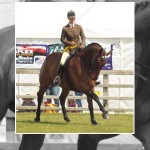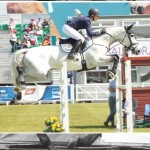Troytown Equine Hospital
As part of its overall commitment to working with horse owners, Troytown Equine Hospital has launched an online seminar series. These free online seminars focus on the key issues facing horse owners.
To date, Troytown has made seminars available on topics such as Navicular Disease, Laminitis, Colic and lung disease with new seminars being made available every month.
You can see the past seminars on www.EquineVetIreland.com and register to receive notifications as new seminars become available online.
Colic in horses
This fascinating 17 minute indepth seminar by Warren Schofield gives an insight into colic and demystifies this terrifying word for horse owners.
Warren explains many of the different types of colic, how it is treated and what the signs are for colic and abdominal pain.
He also talks about why it is important to understand Colic as an owner, when to make that important phone call to seek veterinary assistance.
This video also includes footage of operations being carried out and demonstrates a healthy and unhealthy intestine as blockages are investigated.
Warren also explains the importance of being quick to react if you think your horse is having abdominal pain similarly to a human patient with appendicitis.
Laminitis in horses
Cormac Feeney MVB, Cert ES describes the diagramatic anatomy of the horses’ hoof and explains the aspects of the disease that affect the horses feet and the options available to help your horse back to recovery.
Cormac also looks at the separation and swelling associated with laminitus,with footage to show the difference between a healthy hoof and that of a severely laminitic hoof in a developed stage. There are several stages of this webinar to view further progression of the disease and its treatment.
Diagnosing Laminitus in Horses
Cormac Feeney MVB, Cert ES continues his webinar on laminitis with emphasis on the factors causing the cells to let go and the many causes of laminitis in equines including grain over load, endometritis, Colitis, Cushings Disease, Obesity and weight overload.
This video is complete with demonstrations and images to aid explanation to horse owners of this disease.
Treating Laminitis
This video outlines the options available including restricting exercise, cooling the feet, treating the inflamation and pain, providing weight distribution and cushioning to the foot, unload the feet by encouraging the horse to lie down and dealing with any secondary complications like infections, ulcerations etc. Modifying the diet may also be necessary.
Cormac also looks at three of the most common situations to encounter lainitis with diagrams and video footage to explain each part of his webinar.
Navicular Disease
The next in the series of Troytown webinars looks atnavicular syndrome and the range of different diagnoses it can contain. As a very complicated condition, it is not always presented in the same way, and is not narrowed to one particular type of conformation.
Typically it can be found more often in older horses in competition, almost always in the forelimbs and more often in hanovarian and warmblood breeds. A series of diagrams and photographs are used to illustrate each explanation in this super webinar on Navicular
Part Two: Treating Navicular
This second webinar in the navicular series conducted by Hugh Dillon of Troytown looks at the clinical examination and imaging modalities to help make as definate a diagnosis as possible.
Images throughout this video show a great level of detail and understanding for horse owners wanting to understand this disease.
Part 3: Treating Navicular Disease
In this third and final webinar for the navicular syndrome series, Troytown Veterinary clinic look at the various treatments for this disease.
Corrective trimming, supportive eggbar shoes, controlled exercise and medications available are some of the treatments considered in this video.
Lung Disease in horses
This video is conducted by Hugh Dillon from Troytown Veterinary Clinic as he explains the various causes of different types of lung disease in equines.
This 11 minute webinar looks at symptoms of horses with recurrent airway obstruction and treatments available today. The video is complete with a demonstration on use of an equine nebulizer at Troytown.
More seminars are online atwww.equinevetireland.com
No Foot No Horse
For this final video, please click the link for a very informative video on the importance of correct shoeing for your horse and the effects it has on its’ tendons. The link will take you to the website for Equine Vet Ireland. This unique resource hub is packed full of videos and webinars like those above on veterinary advice for horse owners. This library of videos is being added to on a regular basis so check back regularly to see the latest videos produced by Troytown Veterinary Hospital.
If you would like to contact Troytown, you can phone or email them using the details below:
Troytown Equine Hospital
Green Road
Kildare Town
Co. Kildare
Ireland
Ph: +353 45 521686
Fax: +353 45 522012
Email: info@troytown.ie
www.troytown.ie











